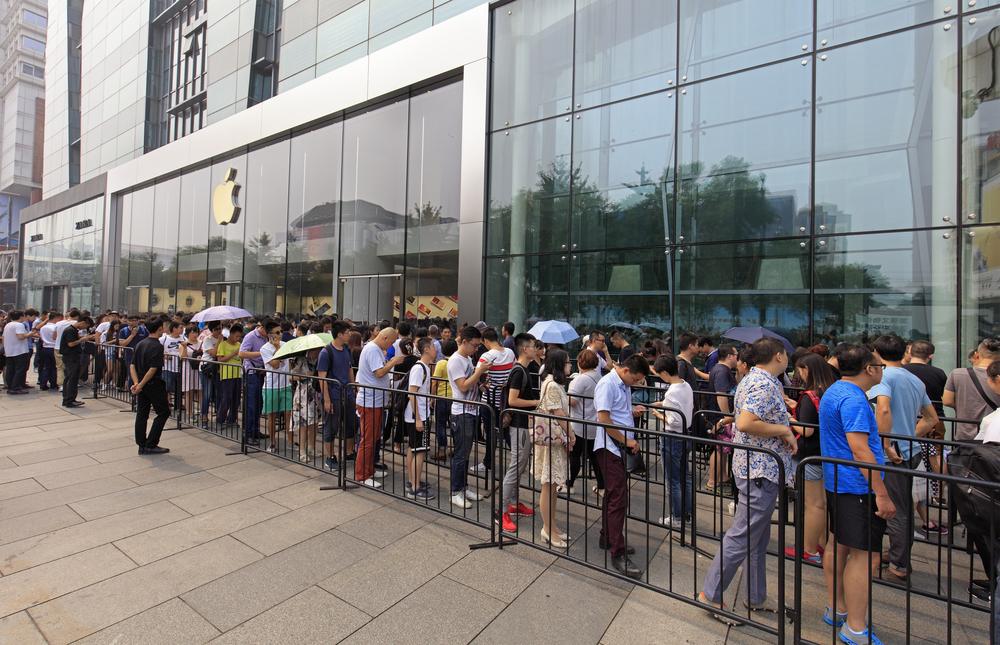Apple continues to dominate the smartphone market following the iPhone 7 launch last Friday and difficulties faced by Samsung’s recall of various Galaxy devices.
Despite disappointing sales for previous iPhone 6 models, consumer sales for the new handset have thus far proved promising for European networks and phone stockists. On Friday, the iPhone went on sale in 28 countries, marking its biggest global launch to date.
Nevertheless, the added and somewhat incremental changes on the iPhone have underwhelmed critics, as Apple continues to find it difficult to revolutionise the much-loved handset. The addition of a wireless headphone jack and waterproofing has nonetheless proved popular with consumers. The new wireless ‘AirPods’ will be released soon, retailing at £159; a sharp increase from the £29 the older ‘EarPods’ currently retail at. This latest release comes alongside the reconfiguration of the iPhone operating system, iOS 10.
Moreover, Apple have benefited from a recently publicised issue with Samsung devices as a result of a widespread manufacturing fault affecting Galaxy Note 7 smartphones. This caused several of the models device batteries to explode, and led to a global recall of thousands of handsets. It has been speculated that up to 2.5 million Galaxy devices may be affected by the glitch, costing the South Korean tech giants Samsung up to $2 million (£1.5million). Pressure to compete with the impending release of the iPhone 7 has been cited as a potential cause of the manufacturing error, after Samsung’s attempts to rush production. Bloomberg intelligence analyst, Andrea Lei said of the error “Clearly, they missed something…they were rushing to beat Apple and they made a mistake.”
Despite the relatively lacklustre renovations of the iPhone 7, Apple continues to benefit from Samsung’s Galaxy complications and high consumer demand. Independent financial advisor Raymond James has subsequently raised its price target for Apple to $139 from $129, projecting a 20% stock rise as a result of the unexpectedly strong performance of iPhone 7 sales.
19/09/2016

